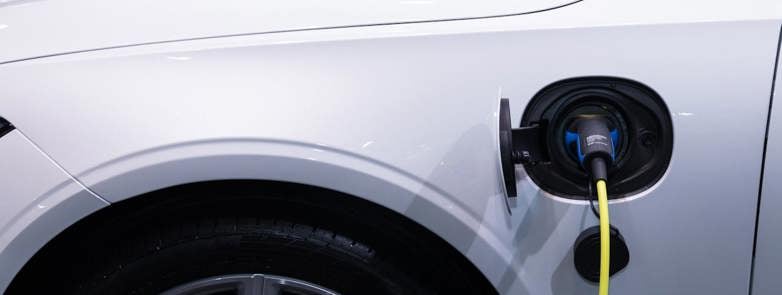Pros and Cons of a Company Car
A company car is recognised as a desirable job perk, but what are the advantages and disadvantages of a company car and is it the right option for you and your business?
To help explain how a company car scheme works, UK car leasing provider, Nationwide Vehicle Contracts, has put together a short guide laying out the pros and cons of a company car.
We discuss:
- What is a company car?
- How does a company car scheme work?
- What are the benefits of company cars?
- What are the benefits of leasing a company car?
- What are the drawbacks of a company car?
- What is company car tax?
- How much tax do you pay for a company car?
- What are the best company cars?
- Is a company car worth it?

A company car is a vehicle provided by an employer for both business and private use. To justify the use of a company car, the employee is usually required to travel significantly for their role, such as a regional sales manager.
Historically, company cars tended to be bought in bulk and the keys handed to an employee. Today, most company cars are chosen by the employee from a list of car lease special offers that have been pre-approved by their employer.
Hybrid and electric cars are the most popular choice for company cars thanks to their low BIK rates, meaning they return significant tax advantages for the employer and employee.
To qualify for a company car scheme, employees usually need to be in a significant or permanent position within the business and have a regular work pattern. Also, once they join the scheme, their wages must not drop below the national minimum wage.
As a company car is considered a privilege that is paid for by your employer, on top of your annual salary, employees who enter a company car scheme must also pay Benefit-In-Kind (BIK) tax. How much tax the employee will pay depends on the vehicle’s market price, income tax band, age of the car, fuel type, CO2 emissions, and engine size.
It's important to note that if your company car scheme includes fuel, you will also need to pay tax on your annual fuel allowance.
If you’re thinking about setting up a company car scheme but don’t know where to start, check out our guide to running a company car scheme. You can also check out our video, explaining how a business contract hire deal works:
There are plenty of benefits to having a company car, from low BIK tax rates to using the scheme as a recruitment incentive.
Benefits of a company car include:

No financial ties for employee
As the car is leased through the business, the employee is not personally tied into a financial contract. It is the company's responsibility to make sure the monthly payments are made on time, as well as any maintenance, servicing or MOT obligations.

No unexpected costs
The employer usually covers insurance, car tax rates, servicing and/or maintenance. Plus, some companies may even have a company car fuel benefit, which will be cheaper than filling up yourself, as your employer will fill up for you and charge you a flat rate like the BIK tax.

Low Benefit-in-Kind (BIK) rates
Benefit-in-Kind (BIK) tax rates are generally a small percentage of the car's final cost. The total tax you pay will depend on the vehicle's CO2 emissions, fuel type, and income tax rate. Because of this, zero emission cars such as electric vehicles are great company cars.
The BIK rates are just 2% for zero-emission cars in 2024/25, increasing by one percent every year. After 2027/28, BIK rates for zero-emission vehicles will increase by two percentage points.
This is still significantly lower than combustion-engined cars, which are capped at 39%.

Recruitment incentive
If you are a business owner, running a company car scheme is a great incentive to attract and retain staff. A company car is an excellent way to show your employees that you appreciate their hard work and sets an example for new employees.
There are plenty of benefits to leasing a company car including avoiding financial burdens such as vehicle depreciation costs.
Benefits of company car leasing include:

A higher class of vehicle
You could drive away a higher class of vehicle for less money, as there are many discounts to be found with brands such as Audi, Mercedes, BMW with company car leasing.
Plus, if you choose an all-electric vehicle like a Tesla or Polestar, you will pay significantly lower BIK tax rates than a petrol or diesel vehicle.

No depreciation costs
Car leasing avoids the burdens of vehicle depreciation as you - or your employer - never owns the vehicle. Once the contract has ended, you can order a new lease car or walk away without any of the stress of having to sell the car.

You get to drive a new car
Company cars are usually changed every two to four years, which means you'll always be driving one of the latest vehicles on the market. This allows you to benefit from the latest in-vehicle technology and safety features.
There are also some drawbacks to having a company car that you should be aware of before deciding, ranging from company car tax to increased liability.
Potential drawbacks of company car leasing include:

Vehicle restrictions
Every business is different, with some having limitations/restrictions in place that may mean you won't be able to choose the vehicle you want.
While this is important to some more than others, it could lead you to being disappointed with the models selected by your employer.

Company car tax
The amount of company car tax you pay depends on a combination of the cost of the car, the amount of CO2 it emits and your tax bracket.
If you are a high earner or drive an expensive car with high CO2 emissions, your BIK tax rates can be costly.

Fuel benefit tax
If fuel is included in your company car package, you may have to pay fuel tax. Your employer may fund this tax, but if they don't, you will be taxed accordingly.

You never own the vehicle
If you leave your current job, the car remains with the employer, which leaves you at risk of being without a car. With a lease agreement, there is no option to purchase the vehicle so you must return the vehicle at the end of the contract.

Increased liability
If you or your employees use their company car for personal use, you are liable for accidents pretty much around the clock. In some cases, it can become costly if you were ever to be involved in an accident, as you would have total liability over the company vehicle.
If you've been fortunate enough to be offered a company car by your employer and want to use it outside of work, you will need to tax the vehicle, which is known as Benefit In Kind (BIK).
A company car is considered a 'perk' that is paid for by your employer on top of your annual salary and has an indirect financial benefit. Therefore you must be taxed by HMRC by the employer completing a P11D form.
The BIK tax rate on a company car is based on a calculation, which takes into consideration the following factors:
- List price of the car
- Age of the car
- Fuel type
- CO2 emissions
- Engine size
The amount of company car tax you'll pay depends on your personal income tax bracket, so if you're a 20% taxpayer, you'll pay 20% of the taxable portion of the car's official price, also known as P11D value.
Likewise, if you're a 40% taxpayer, you'll pay 40% on the taxable amount of the P11D value. This amount is usually taken from your monthly pay.
Tax rates on company cars can fluctuate depending on the type of car, vehicle cost, fuel, and efficiency. Take a look at our Company Car Tax Explained guide to find out how much your desired vehicle tax may be.
“Not having to finance your own vehicle is a major advantage for many company car drivers, particularly during times of economic uncertainty. Yet it’s important to understand the tax implications, which can make driving a company car uneconomical in some circumstances.”


Choosing the right company car can be complicated. You want to find a vehicle which is suitable for your work requirements but also looks great. They also need to be comfortable, spacious and have updated tech features for long commutes.
Company car tax is a significant factor when deciding on a vehicle too, so it's best to look for one which offers low Benefit-in-Kind (BIK) rates to help reduce how much of your salary goes towards your company car.
This is why electric and hybrid car's are undoubtedly the best choice for a company car. In our Top 10 Company Lease Cars guide, every car included was either an hybrid or electric car, and it's not hard to see why:
- Lower BIK tax rates.
- Reduced running costs.
- They show your business is sustainable and committed towards net-zero.
- Provide access to clean air zones without paying a charge.
- Come with state-of-the-art technology and advanced driver assistance systems.
Take the Tesla Model 3 for example, one of the most popular company cars on the market but comes with a ridiculously low BIK rate of just £159 a year because it emits zero emissions.
Compare this to the Skoda Octavia, which is also a popular car and has loads of advantages, but its BIK rate is £1,541 a year because it has a combustion engine.
If you've been offered a company car, there are many things to think about. It's crucial to weigh both the pros and cons before deciding whether this option is right for you.
Unfortunately, when it comes to deciding whether to take a company car or company car allowance, it's not "one size fits all". This decision is based on your individual circumstances, such as your financial situation, personal needs and other tax liabilities.
A popular company car scheme is salary sacrifice, where an employee gives up part of their gross salary in exchange for a fully insured and maintained new vehicle. With this type of scheme, the employee effectively gets a brand new car at a significantly lower cost than the retail market, as the salary is sacrificed before tax and national insurance contributions are taken.
In this case servicing, maintenance and fully comprehensive motor insurance are typically included within the scheme.
It is also essential to take into account your personal circumstances. Such as, if you expect to do a lot of private mileage, it may be a better idea to go with a company car allowance than a company car.
Have a question regarding Business Car Leasing or want to learn more about company cars? Call Nationwide Vehicle Contracts on 0345 811 9595 to speak to one of our lease specialists.
Guide Information
Originally published: 3rd November 2017
Last updated: 14th January 2025
